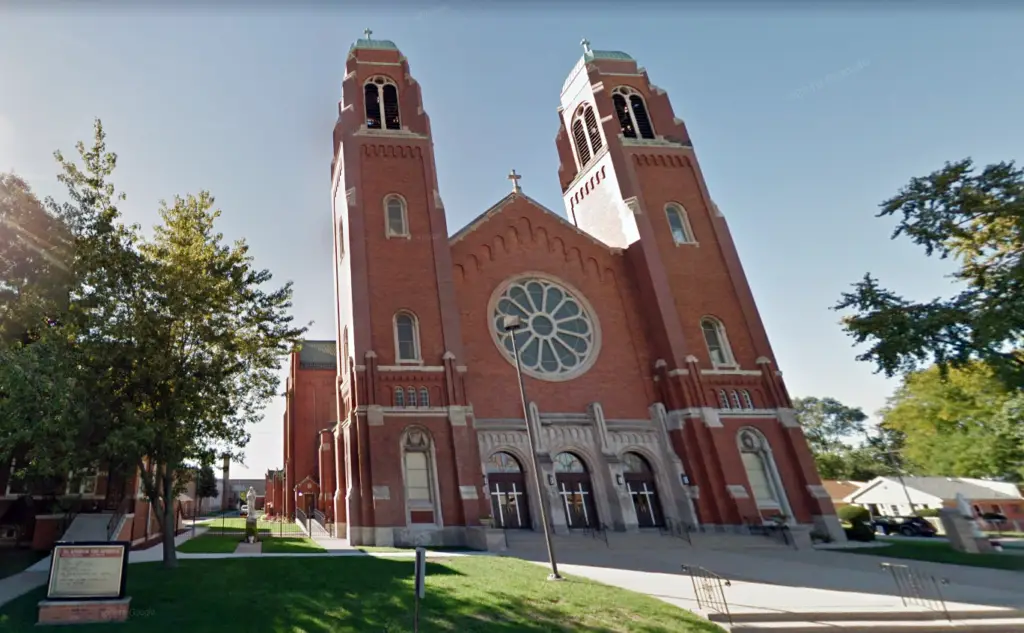WASHINGTON (BP) – The Southern Baptist Convention’s religious freedom entity and other faith organizations have urged a federal appeals court to reconsider its application of the “ministerial exception” rulings by the U.S. Supreme Court in cases involving employment decisions by churches and other religious institutions.
The Ethics & Religious Liberty Commission (ERLC) was among the groups that filed a friend-of-the-court brief Oct. 13 that called on the entire Seventh Circuit Court of Appeals in Chicago to rehear a case in which a three-judge panel ruled in favor of a music director who was fired by a Catholic church. The brief asserted the 2-1 decision by the appeals court panel “mandates extraordinary secular interference with core ecclesiastical judgments.”
In their brief, the ERLC and the other signers contended the Seventh Circuit panel’s opinion offers a “cramped conception of the ministerial exception” that the Supreme Court “has expressly rejected.”
The high court doctrine expressed in a 2012 ruling and reaffirmed in a decision this July applies to certain employees “because their job entails exemplifying their faith and performing core religious duties,” according to the brief. “Judicial scrutiny of the employment relationship between a religious group and its ministers inevitably invites unconstitutional interference with religious groups’ self-governance, no matter what kind of employment claim is involved.”
The Seventh Circuit panel’s Aug. 31 decision involved a hostile work environment claim by Sandor Demkovich, who was hired in 2012 as the music director at St. Andrew the Apostle Parish, a Catholic church in Calumet City, Ill., and fired in 2014. Demkovich, who had been in a same-sex relationship for more than a decade, was overweight and had diabetes and an array of physical conditions known as metabolic syndrome, the court opinion reported. He said his supervisor at the church “subjected him to a hostile work environment based on his sexual orientation and his disabilities,” according to the opinion.
When Demkovich married his long-time male partner, the supervisor called for the music director’s resignation because the union violated Catholic doctrine. When he refused to resign, the supervisor fired Demkovich.
In its opinion, the Seventh Circuit panel said the fact Demkovich’s complaint regarded his treatment and not his firing means the Supreme Court’s 2012 Hosanna-Tabor Evangelical Lutheran Church and School v. EEOC decision does not cover his case. The high court ruled unanimously in the Hosanna-Tabor opinion a “ministerial exception” exists that enables churches and other religious institutions to hire and fire based on their beliefs.
In explaining its ruling, the panel said the First Amendment clause guaranteeing the free exercise of religion “does not bar all hostile environment claims by ministerial employees.” The panel described the threat of “procedural entanglement in such cases is modest because religious organizations have no generalized claim to immunity from litigation or regulation.” It also acknowledged “some risk of substantive entanglement” in cases involving claims of hostile work environments, “but that risk does not appear so severe that all such claims must be dismissed.”
The brief filed by the ERLC and others asserted, however, workplace hostility claims attract particularly severe interference by the government in spiritual issues. Such claims “place the entire employment relationship under a judicial microscope,” according to the brief.
The Seventh Circuit panel also misunderstood the “ministerial exception” to require “a claim-by-claim inquiry into whether religious groups need leeway over particular types of employment actions to fulfill their ecclesiastical missions,” the brief said. “The Supreme Court instead treats the exception as prohibiting interference in the whole employment relationship between religious groups and their ministers.
“Because judicial second-guessing of religious groups’ hiring and firing decisions necessarily intrudes upon matters of internal church governance, judicial second-guessing of other facets of the employment relationship – including informal communications – necessarily raises similar concerns,” according to the brief.
In addition to the ERLC, the organizations signing onto the brief were the Assemblies of God (USA), Church of God in Christ, General Conference of Seventh-day Adventists, Jewish Coalition for Religious Liberty, Church of Jesus Christ of Latter-day Saints and the International Society for Krishna Consciousness.
The Supreme Court reiterated its support for a “ministerial exception” in July with a 7-2 decision in Our Lady of Guadalupe School v. Morrissey-Berru. Both the Hosanna-Tabor and Our Lady of Guadalupe School cases involved the firing of teachers. The ERLC signed onto briefs in support of a “ministerial exception” in both cases when they were before the Supreme Court.
The ERLC and the other signers also asked the Seventh Circuit Court to grant its motion to file the brief. Demkovich did not consent to its filing.
This article was originally published by Baptist Press at baptistpress.com

